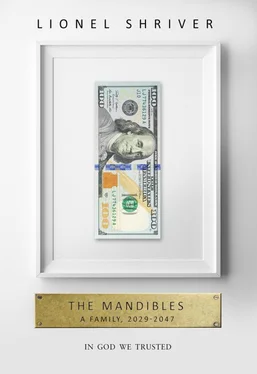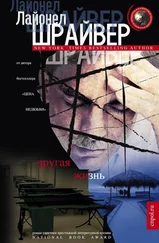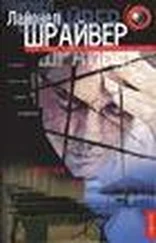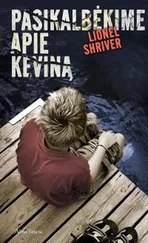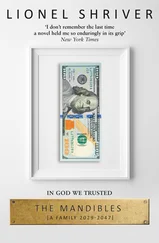“Unfortunately, that’s what everyone thinks,” Nollie said. “Now, stop. Organize yourself.”
“I have no idea whether I killed him.”
“An excellent first line for a short story. But even a story would have to back up.”
“I don’t know the guy well.” Willing bombed onto the sofa, to force himself to sit still. “Little older than me, maybe thirty-five. He’s on staff—was. Since even if he makes it, well—Elysian definitely has grounds for dismissal now. Always looks under-slept. Probably has a night job, too. I talked to him last week, at lunch. He supports his sister, who’s a striker. He tops up his younger brother’s slumber account, because it’s cheaper to keep the brother in storage than to support him if he’s unemployed. This guy, Clayton. His wife got pregnant. They both wanted the baby. Badly. But there was no way they could afford to keep it. She’d just had an abortion. He seemed pretty shredded about it. Looking back, I guess he was twitchy. But those ‘warning signs’ you’re supposed to look out for. They only seem obvious in retrospect. In the present—stressed, angry, having money problems, expressing resentment of shrivs—they apply to everyone I know.”
“Your friend Clayton shot up the nursing home.”
Nollie was hardly psychic. The protocol had become such a cliché.
“I don’t know where he got the gun, but that amnesty in the thirties was a farce.”
“Any idea of the body count?”
“Not really. He started with the morts, so that would have upped the numbers. I’m sure you could go online and find reports of casualties anywhere from ten to a hundred and forty. The usual.”
“You took him down.”
“Does that impress you?” In truth, Willing was in shock. For fifteen years, the Shadow had been a mere mascot—part companion, part lucky charm, a metal version of Milo. He’d almost forgotten what it was engineered to do: something a bit more drastic than “sit.”
“I’m impressed that you didn’t let him go at it. Your mother told me you advocated ‘shooting’ Luella well before my father did the honors. She worried that having said that might have made you feel bad later.”
“It didn’t,” Willing said.
“Fifa will disapprove. She’ll think you should have joined in.”
“I had a clear line of sight from the cracked-open door of the closet where I was hiding. The chance wasn’t going to last. I had to make a split-second decision. I think I only hit his shoulder. An orderly pinned him when he dropped. I slipped out in the pandemonium. The trouble is—”
“You’re more energized than I’ve seen you in years.”
“So that’s the answer. To my malaise. Shoot people.”
“Seems a start.”
“I might have been seen. That orderly could have noticed it was me.”
“But you’ll be a hero.”
“I don’t want to turn in the Shadow. I shouldn’t have given away that I have it.”
Nollie squinted. “We could hide it. You could claim to have thrown it in the East River in some PTSD revulsion. We could make up a story about how you’d found it in the house, how it was left behind by squatters. How you’d always planned to turn it in. But look at you. Just now, your face fell. You don’t want my good excuses. You miss urgency. You like the idea of having to leave. Of being on the run.”
She knew him well. And he knew her. So they began talking about what they had been talking about since the previous night, without ever saying so outright.
“I have enough bancors to buy an extremely nice car,” Nollie said. “This time, we wouldn’t have to walk.”
Virtually no one bought a car anymore. Major American cities like New York bore more resemblance to mid-twentieth-century Shanghai than to the whizzing futuristic metropolis of The Jetsons . In eerie silence, multitudes of electric bicycles swarmed single public buses like bees around a queen.
“I’m chipped,” he reminded her. “They can track where I am.”
“If they care. That is, if you were the mass murderer at Elysian and you’d escaped, you’d have a problem there. But you were the good guy. As I understand it, too, the police have to appeal to the Scab to use their satellites, and scabbies are proprietary.”
Granted, despite Fifa’s conviction that they lived in a police state, the powers of the police per se were surprisingly restricted. The FBI was little more than a website. Movie buffs who watched classic thrillers like the Bourne trilogy must have been disconcerted by this mythically demonic organization called the CIA , whose sticky fingerprints no longer stained assassinations and coups all over the globe, and whose Langley headquarters, according to Avery, had been taken over by a discount grocery chain from the Punjab. (In a flurry of films and series from abroad in the thirties, Americans were popular villains: schemers from the Federal Reserve out to defraud innocent investors with sales of bonds they knew full well would soon be worthless, or wicked financiers who escaped the economic depredations of the era by absconding with ill-gotten gains. But in the Korean and Vietnamese entertainment of this decade, American characters were mostly walk-ons—incompetent or hapless buffoons played for laughs.) The powers of the Scab, by contrast, were very real, and veritably limitless.
“Is it even possible?” he asked. “To just—not show up for work, and—go? Wherever you want? Without asking, or filling out a form, or notifying some official?”
Nollie’s smile was pained. “People used to pick up and drive across the country for weeks at a time. Stopping where they wanted. Doing what they wanted. Generally this was called a vacation . Back when wage earners got vacations. But the fact that young people like you think you need permission to careen into the horizon, think it must be against the law to quit a scurvy job without asking—that alone is reason to go.”
“But if it’s true. About the chip. You might get through. For me, it would be suicide.”
“So you can sleep or ass-wipe your life away, or you can take a chance. Which I rate at about fifty-fifty. Sixty-forty maybe,” Nollie said, reconsidering.
“Which direction?”
“Does it matter?”
“I’ll have to ask Fifa to come, too.”
“Of course. Although—well, she talks a good game…”
“I know,” Willing said sadly.
“Let’s get out of here. We have a car to buy. Meanwhile, if anyone comes nosing around looking for the savior of Elysian Fields, you’ll be out.”
Statistically, most people anguish longer over the purchase of a pair of shoes than over whether to buy a house. In kind, two of the biggest decisions of Willing’s life had been dizzyingly expeditious. It took under a second to determine whether to stop a fellow staff member from putting more residents out of their misery and instead to put Clayton out of his. It took less than five minutes to resolve to commit treason.
On the way back from the dealer, they swung by Fifa’s house. Typically, she lived with her parents. Willing had arranged to meet between her railing installations and her shift at the sandwich factory that night (the holiday weekend being extinct). She’d been relieved to hear from him. The shooting at Elysian was already on the news—though the reporting was blasé, nursing home melees having become so commonplace. To give them privacy on Fifa’s stoop in Brownsville, Nollie stayed in the Myourea— Thunderbird in Khmer, a much-coveted import from Cambodia. Its sweet hydrogen lines combined with a 1950s teal-and-cream two-tone drew admiring onlookers.
“You mean, practically right now,” Fifa said incredulously after hearing him out. Her face was ashen, and she needed a shower. She looked hung-over.
Читать дальше
